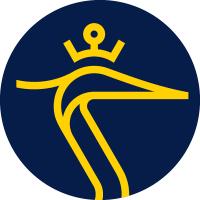Animal Behaviour BSc (Hons)
Why do animals behave the way they do – and how can you use this knowledge to manage, conserve and protect species? Find out on the UK’s longest-established animal behaviour degree. Recognised by the Royal Society of Biology, our Cambridge-based course offers an integrated, scientific approach, with hands-on lab experience, field trips in Europe and Uganda, and an optional placement year. You could make the difference between future generations seeing species live or reading about them in history books.
Full description
Naked mole rats can run as fast backwards as they can forwards. Male penguins propose to their partners with the gift of a stone. Elephants bury their dead.
We understand more than ever before about the behaviour of animals – but with so much more to learn, could you be the one to discover one of the major scientific breakthroughs of the 21st century?
Our three year degree is the longest-established animal behaviour course in the UK, and the degree is recognised by the Society of Biology. Learn how and why animals behave the way they do, and how this can impact on the management and conservation of wild and domesticated creatures. You’ll develop the skills you’ll need to investigate animals and contribute to important discoveries in the future.
By studying animal behaviour, you’ll learn how we can manage and protect species. The development, physiology and evolution of species will form the basis of this course, but it’s not all theory. It’s a practical subject and we give you plenty of opportunities to learn and practise both in the lab and the field. In your second year you’ll take a series of half day trips to learn about and practise advanced behavioural data collection, the costs of which are included in your course fees. On our optional field trips you might experience rutting red deer on the island of Rum; marine biology in Scotland; world-class zoos in the Netherlands; wildlife and ecology in Africa; and diving and marine biology in the Red Sea. You’ll need to pay for these trips.
Our staff are involved in field and captive studies internationally and in the UK, and have research links with organisations studying British wildlife and at Britain's most respected zoos.
Campus Information
Cambridge
Cambridge has been renowned as a centre of learning since the 13th century – and we’ve been here since 1858 when Cambridge School of Art first opened its doors. Today, our friendly, bustling campus is a stone’s throw from the historic city centre with its vibrant cultural and social scene
Intakes
- Jan
- Sep
Application Processing Time in Days: 30
Application Process
Minimum English Language Requirements
| English Level Description | IELTS (1.0 -9.0) | TOEFL IBT (0-120) | TOEFL CBT (0-300) | PTE (10-90) | |
|---|---|---|---|---|---|
| Expert | 9 | 120 | 297-300 | 86-90 | |
| Very Good | 8.5 | 115-119 | 280-293 | 83-86 | |
| Very Good | 8 | 110-114 | 270-280 | 79-83 | |
| Good | 7.5 | 102-109 | 253-267 | 73-79 | |
| Good | 7 | 94-101 | 240-253 | 65-73 | |
| Competent | 6.5 | 79-93 | 213-233 | 58-65 | |
| Competent | 6 | 60-78 | 170-210 | 50-58 | |
| Modest | 5.5 | 46-59 | 133-210 | 43-50 | |
| Modest | 5 | 35-45 | 107-133 | 36-43 | |
| Limited | 4 | 32-34 | 97-103 | 30-36 | |
| Extremely Limited | < 4 | < 31 | < 93 | < 30 |
Job Opportunity Potential
We know that your future career prospects are important, and we're here to help you prepare for the world of work.
Whether you've just joined ARU or you're starting to think about graduation, the Employability Service can support you with career planning, job searches, interview preparation and more. We also organise a host of events, including careers fairs, workshops and opportunities to meet employers.
We work with employers to make sure you graduate with the knowledge, skills and abilities they need. They help us review what we teach and how we teach it – and they offer hands-on, practical opportunities to learn through work-based projects, internships or placements.
Studying animal behaviour could make the difference between future generations seeing live examples of a species, or reading about them in a history book. It could help you to manage and enhance the habitats of zoo animals, or to educate the public on the importance of animal welfare.
What you’ll learn on this course could take you into a career relating to domestic and captive animal management, animal training and behavioural rehabilitation, or zoo education to name but a few. The transferable scientific skills you’ll develop could also open up a career in the field or the laboratory – perhaps for a government agency or an environmental consultancy.
PSW Opportunity
Studying with us for longer than six months
If you’re coming to study with us for undergraduate, postgraduate taught or postgraduate research course, you’ll need to apply for the Tier 4 student visa.
The new ‘Graduate’ route will be open to all international students – immigration status as a student and have successfully completed a course of study in any subject at undergraduate level or above at an approved UK Higher Education Provider. The visa will allow eligible students to work, or look for work, in any career or position of their choice, for two years after completing their studies.
Admission Requirement / Eligibility Criteria
India to ARU
A recognised foundation programme
International Baccalaureate Diploma
International Advanced Levels (A Levels)
HSC/Standard 12 with an overall average of 50% from the West Bengal exam board
HSC/Standard 12 with an overall average of 55% from the following exam boards: CBSE, Delhi, Mumbai, Tamil Nadu
HSC/Standard 12 with an overall average of 60% with at least 40% in a minimum of 5 subjects from any other exam board
Bangladesh to ARU
A recognised foundation programme
International Baccalaureate Diploma
International Advanced Levels (A Levels)
2-year Bachelor degree in a related subject from a recognised institution with 60% or above
Diploma (from the Bangladesh Technical Education Board or other recognised institution) in a related subject with 60% or above
Nepal to ARU
A recognised foundation programme
International Baccalaureate Diploma
International Advanced Levels (A Levels)
Higher Secondary Education Board Examination Certificate with 60%
Sri Lanka to ARU
A recognised foundation programme
International Baccalaureate Diploma
International Advanced Levels (A Levels)
Two General Certificate of Education (GCE) Advanced Level examinations or local Sri Lankan A levels with grade C in relevant subjects with grade C or above
GCE A levels from a recognised UK examination board.
An International Baccalaureate with a minimum of 24 points.
A university foundation course recognised by Anglia Ruskin University.
Relevant qualifications obtained in your home country
If English is not your first language you'll need to be able to show you have the required level of English language. This is so we can ensure you'll be able to follow your course.
Our standard entry criteria for undergraduate courses is IELTS 6.0 or equivalent, with nothing lower than 5.5 in any of the four elements (listening, speaking, reading and writing). Do note that some of our courses may have higher English language proficiency requirements; for specific details and exceptions regarding IELTS, please visit your course page of choice.
Please note that any student requiring a SELT for pre-sessional English course must ensure that they take their IELTS at an approved test centre.
We also accept the following English language tests as equivalent to IELTS 6.0 with 5.5 in each element:
ETS TOEFL iBT with 80 overall and a minimum of 17 in Writing and Listening, 18 in Reading and 20 in Speaking
Pearson PTE with 57 overall and a minimum of 51 in all components.
112 UCAS Tariff points from a minimum of 2 A Levels (or equivalent), including a pass in Biology or Psychology.
3 GCSEs at grade C, or grade 4, or above, including English and Maths.
If English is not your first language you will be expected to demonstrate a certificated level of proficiency of at least IELTS 6.0 (Academic level) or equivalent English Language qualification, as recognised by Anglia Ruskin University.
Notes
For students who do not meet the standard entry tariff but have at least 48 UCAS points, a 4 year (full-time) option which includes a Foundation year is available.
Alternatives
BTEC Extended Diploma in Animal Management at grade Distinction, Merit, Merit (112 UCAS Tariff Points) is accepted. Applicants must have also successfully completed specific modules (listed at the foot of this page).
BTEC Extended Diploma in Applied Science at grade Distinction, Merit, Merit is accepted.
UCAS Tariff Points from Access to HE Diplomas in one of the following subjects are accepted: Animal Management, Biological Science, Biological and Environmental Science, Combined Science, Environmental Science, Applied Science, Science for Health Practitioners. Harlow College Access to HE Diploma: Life Science is also accepted.
International Baccalaureate Diploma with a minimum of 24 points is accepted, this must include Biology or Psychology at Higher level.
UCAS Tariff points from the Irish Leaving Certificate are accepted, this must include a Pass at Higher level in a related subject.
UCAS Tariff points from Scottish Advanced Highers are accepted, this must include a Pass in a related subject.
UCAS Tariff points from Scottish Highers are accepted, this must include a Pass in a related subject.
City and Guilds Level 3 Advanced Technical Extended Diploma in Animal Management with a final grade of Distinction. Applicants must have also successfully completed specific modules, please contact the Admissions office at admissions@anglia.ac.uk for further information.
HND qualifications in a related subject are accepted.
The European Baccalaureate at a minimum overall grade of 60% is accepted.
- Course Type: Full Time
- Course Level: Bachelors/UG Degree
- Duration: 03 Year
-
Total Tuition Fee:
41700 GBP
Annual Cost of Living: 9207 GBP
Application Fee: N/A
Similar Programs
- BSC (HONS) Computing at Anglia Ruskin University
- BSC (HONS) Embedded Computing and Machine Learning at Anglia Ruskin University
- Public Health BSc (Hons) at Anglia Ruskin University
- Pharmaceutical Science BSc (Hons) at Anglia Ruskin University
- Marine and Terrestrial Conservation BSc (Hons) at Anglia Ruskin University
- International Nursing Studies BSc (Hons) at Anglia Ruskin University

